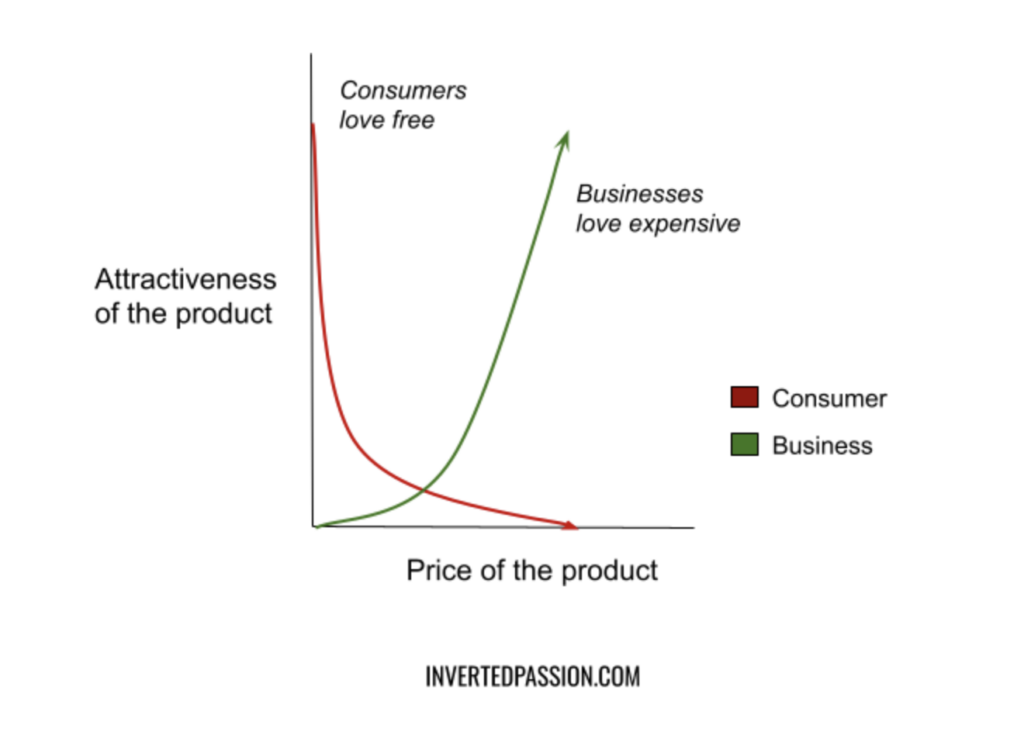Mark Zuckerberg famously said that there’s no point in monetizing a consumer product unless you have a billion users. Consumers are habituated to getting digital services for free. This makes monetization for consumer products very tricky. Try recalling all the digital products or services you pay for as a consumer. In all likelihood, there won’t be too many as increasingly music, news, movies, productivity apps, and games are all free.

Businesses, on the other hand, prefer paying. For consumers, their salary is a cap on how much they can earn, so they can’t increase their monthly costs indefinitely. However, for a business, if an additional cost helps them grow their revenue and profits, they will happily pay for it. So, businesses are used to buying expensive stuff if they see returns from it.
In fact, enterprises won’t buy your product if they think it’s too cheap. The reason behind this is that when a business buys a product, they want it to last for a long time. Nobody inside an organization wants to put her job in line by designing a critical business need around a product that might not exist in a year. So, if a product is too cheap, businesses will actually be reluctant to purchase it as they fear it might not be able to sustain itself.
Remember: never make your product too cheap for a business and too expensive for a consumer.
This essay is part of my book on mental models for startup founders.
Join 200k followers
Follow @paraschopra